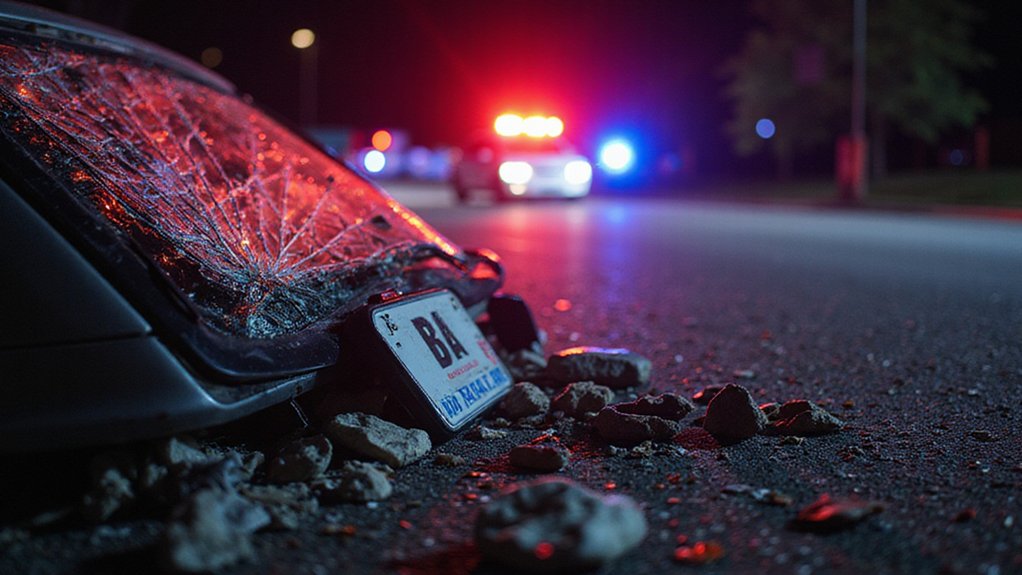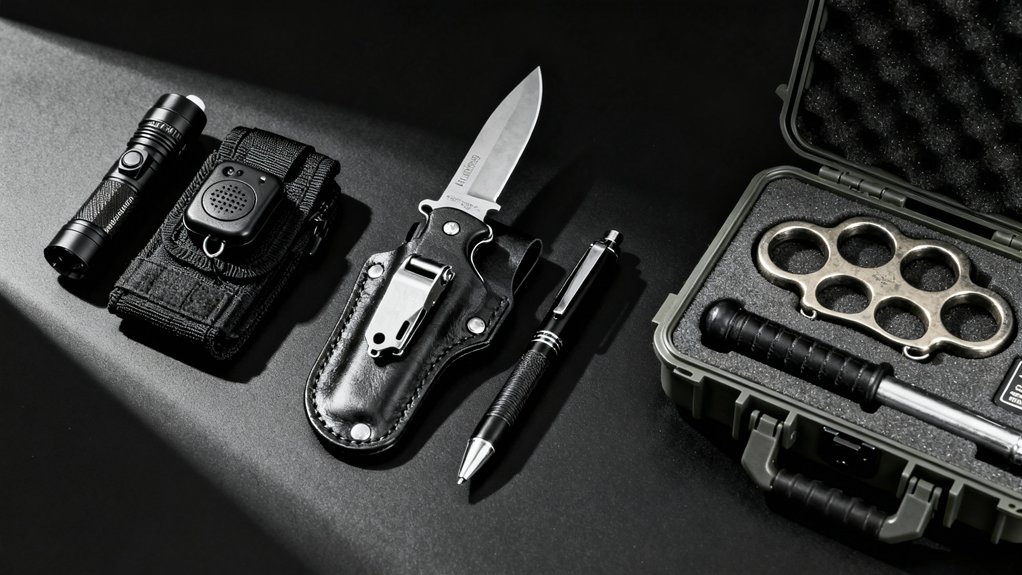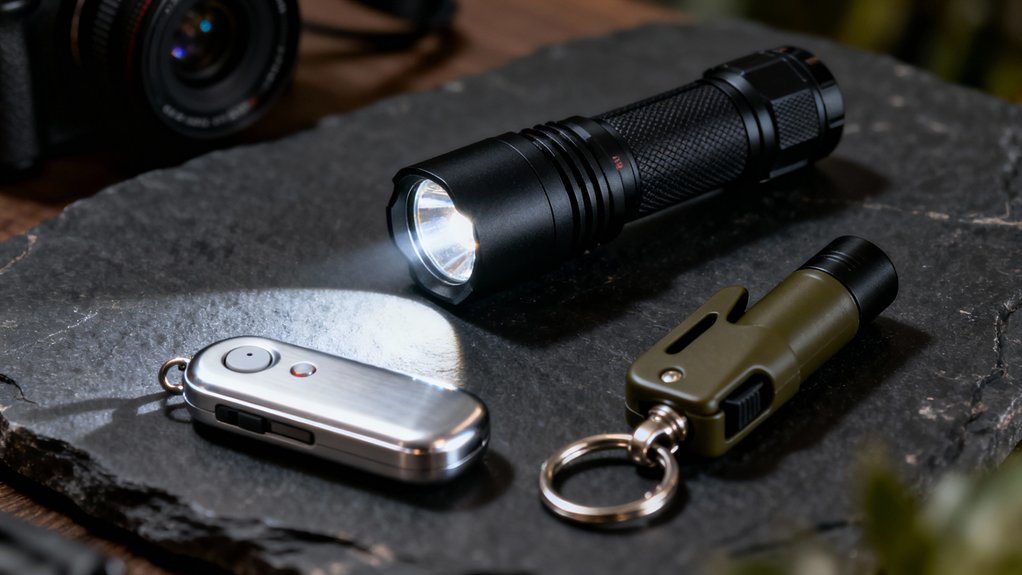Brazil enforces strict drunk driving laws through its “Lei Seca” zero-tolerance policy, prohibiting any detectable blood alcohol content while driving. Penalties include fines of R$2,934.70, license suspensions from 12 months to three years, and immediate vehicle impoundment for administrative violations. Criminal charges apply at BAC levels above 0.06%, resulting in prison sentences ranging from two to eight years depending on circumstances. Refusal to submit to breathalyzer testing incurs identical penalties to positive results. Further exploration reveals additional enforcement mechanisms and comparative legal frameworks.
Brazil’s Zero Tolerance Policy and Blood Alcohol Content Limits
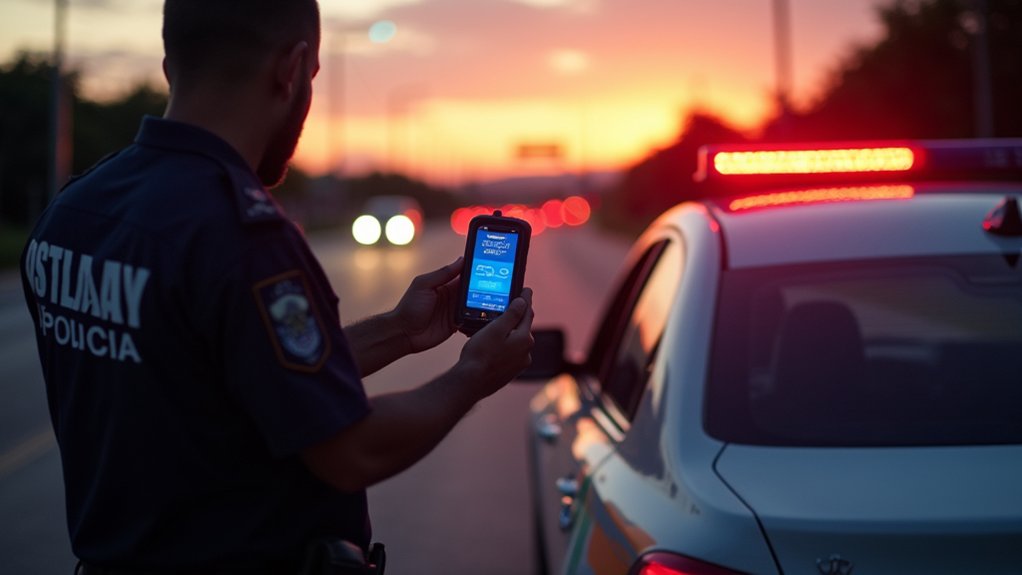
Brazil’s approach to combating drunk driving has undergone a dramatic transformation from relatively lenient standards to one of the world’s strictest policies.
The country initially established a BAC limit of 0.8 g/L in 1989, which was reduced to 0.6 g/L in 1998 under the Brazilian Traffic Code.
However, the most significant change came with the enactment of the Zero Tolerance or “Lei Seca” on June 19, 2008, establishing a BAC limit of effectively 0.0 g/L for drivers.
This zero-tolerance stance was further reinforced through Law 12.760 in 2012, which increased fines up to ten times their original amounts while maintaining license suspensions and vehicle impoundment. These measures were accompanied by roadside checks and sobriety testing procedures to ensure consistent enforcement of the new regulations.
Law 13.281 in 2016 added stricter penalties for breathalyzer refusal, classifying it as a very serious offense.
Legal Framework and Recent Legislative Changes
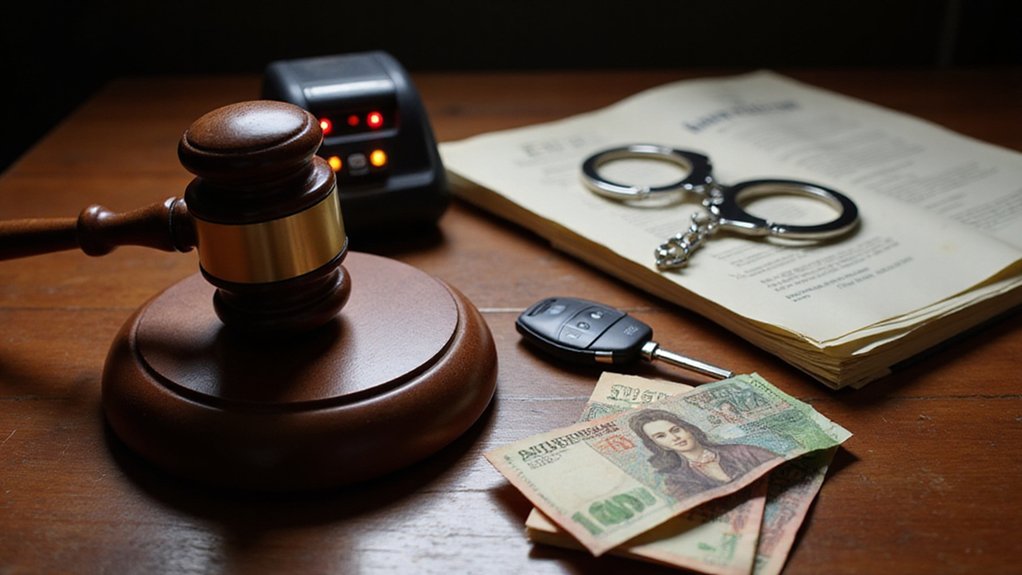
Following decades of rising traffic fatalities linked to impaired driving, the Brazilian government enacted Law 11,705 in June 2008, fundamentally transforming the nation’s approach to drunk driving enforcement.
This legislation established Brazil’s “Dry Law,” reducing the permissible blood alcohol concentration limit from 0.6 g/dL to zero tolerance for all drivers.
The law introduced extensive penalties including substantial fines of R$2,934.70, license suspensions ranging from 12 months to three years, vehicle impoundment, and potential criminal charges.
Drivers exceeding 0.06% BAC face imprisonment under traffic crime statutes.
Law 12,760, enacted in 2012, further strengthened these provisions by reinforcing zero tolerance standards and implementing stricter penalties. The implementation prompted law enforcement to establish increased sobriety checkpoints throughout the country, resulting in over 5,000 DUI citations as authorities worked to enforce the new standards.
The legislative framework also permits courts to mandate alcohol interlock devices for repeat offenders, ensuring sustained compliance and preventing recidivism among high-risk drivers.

Administrative Penalties and Financial Sanctions
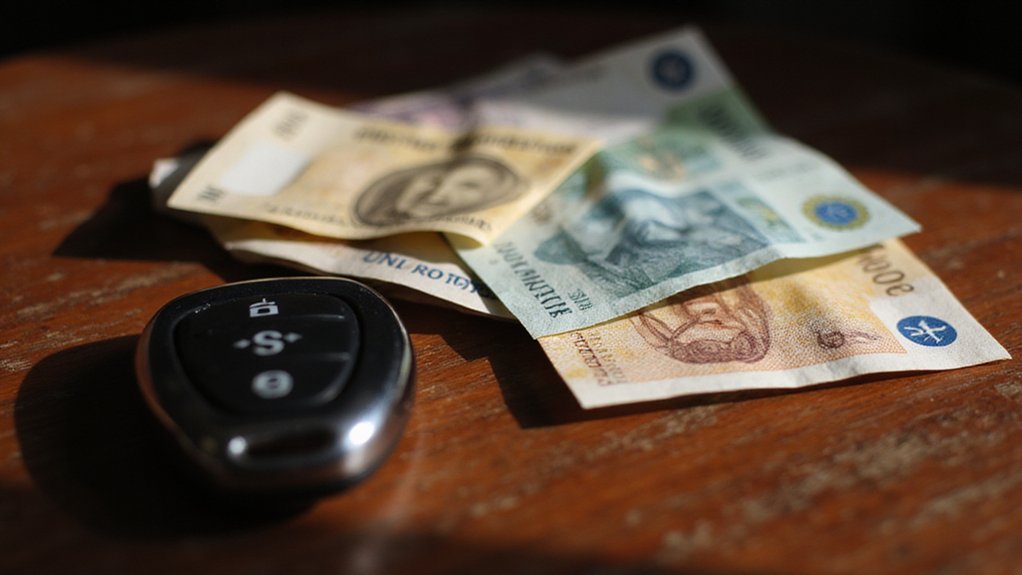
Multiple administrative penalties serve as the primary enforcement mechanism for Brazil’s zero-tolerance drunk driving policy, creating immediate consequences that operate independently of criminal proceedings.
License suspensions range from 12 months for moderate offenses to three years for serious infractions involving high blood alcohol levels. Drivers with breath alcohol concentration between 0.04 and 0.34 mg/L face mandatory 12-month suspensions alongside financial penalties.
Standard fines amount to approximately R$2,934.70 for confirmed positive tests or refusal to undergo breathalyzer testing. Police can immediately impound vehicles upon DUI detection, further restricting operation during penalty periods.
These administrative sanctions create a dual enforcement regime alongside criminal penalties. However, studies indicate current financial penalties may require increases up to 2.5 times to effectively deter strategic test refusals.
Criminal Charges and Prison Sentences
While administrative penalties provide immediate enforcement mechanisms, Brazil’s criminal justice system imposes far more severe consequences for drunk driving violations.
Under Brazil’s National Traffic Code and its 2017 amendment (Law No. 13,546), DUI offenses carry imprisonment ranging from 5 to 8 years, representing a substantial increase from the previous 2 to 4 years.
When drunk driving causes serious bodily injury, prison terms range between 2 and 5 years alongside license suspension.
Criminal charges apply when blood alcohol concentration exceeds 0.06%, with BAC levels above 0.34% triggering immediate prosecution. However, drivers can avoid these criminal sanctions by refusing breath tests, which results in only a modest fine of approximately US$ 500 and temporary license suspension.
The legal framework operates under effectively zero tolerance, making any detectable alcohol consumption criminal if it impairs driving.
Evidence for prosecution includes BAC results, witness statements, and video recordings, eliminating previous legal loopholes.
Enforcement Mechanisms and Testing Procedures
Brazil’s zero blood-alcohol content limit forms the foundation of the country’s enforcement framework, empowering traffic officers to conduct breathalyzer tests at any traffic stop where alcohol impairment is suspected.
The system utilizes systematic sobriety checkpoints to randomly assess drivers for intoxication. Officers may base suspicion on driver behavior, appearance, or other observable indicators before requesting testing.
Test results determine legal consequences based on specific thresholds: no penalty below 0.04 mg/L, administrative sanctions between 0.04-0.34 mg/L, and criminal charges at 0.35 mg/L or higher.
Refusing breathalyzer testing carries identical penalties to positive results below the criminal threshold, designed to discourage non-compliance. When drivers refuse testing, officer observations, witness reports, and video evidence serve as alternative or supplementary proof of impairment in legal proceedings. Brazil’s Supreme Court unanimously upheld the constitutionality of these enforcement measures after a decade of legal challenges.

Comparative Analysis and Public Health Impact
Since implementing its zero-tolerance policy in 2012, Brazil has distinguished itself from most nations by enforcing a complete prohibition on alcohol consumption before driving, setting its blood alcohol concentration limit at 0.0 g/L compared to the 0.2 to 0.5 g/L thresholds permitted in many other countries.
This stringent approach has yielded measurable public health benefits, with traffic-related hospitalizations decreasing by 0.34 per 100,000 inhabitants nationally. Young men aged 15-39 demonstrated the most significant reduction in crash-related admissions. The implementation has been supported by comprehensive public awareness campaigns that emphasize the dangers of drunk driving and promote behavioral change among drivers.
The economic implications are substantial, as a 20% reduction in alcohol consumption could prevent approximately 10,000 deaths annually and save Brazil 2.1 billion reais in productivity losses from premature fatalities caused by drunk-driving incidents.
Frequently Asked Questions
Can Foreign Tourists Be Prosecuted Under Brazil’s Drunk Driving Laws?
Yes, foreign tourists can be prosecuted under Brazil’s drunk driving laws.
Brazilian DUI regulations apply equally to all drivers regardless of nationality, including tourists using their home country’s licenses or rented vehicles.
Foreign visitors face the same penalties as Brazilian citizens: fines around $400 USD, license suspension, vehicle impoundment, and potential jail time.
Criminal charges apply when blood alcohol content exceeds 0.3 mg/l on breathalyzer tests.
What Happens to Commercial Drivers Caught Driving Under the Influence?
Commercial drivers caught driving under the influence in Brazil face severe penalties under a zero-tolerance policy.
They encounter license suspension ranging from 12 months to 3 years, criminal charges with potential imprisonment of 5-8 years, and substantial fines exceeding R$2,900.
The blood alcohol limit for commercial drivers is considerably lower at 0.02% compared to private drivers.
Refusing breathalyzer tests triggers identical penalties, and drivers must notify employers of any license suspension or disqualification.
Are There Different Penalties for Repeat DUI Offenders in Brazil?
Yes, Brazil imposes markedly harsher penalties for repeat DUI offenders compared to first-time violators.
Recidivists face expensive fines, license suspension for 12 months extending up to 3 years, mandatory refresher driving courses, and potential ignition interlock device requirements.
Penalties escalate with multiple offenses, potentially leading to felony charges and mandatory medical or psychological treatment.
License reinstatement involves strict conditions including zero BAC limits and court oversight for repeat offenders.
Can DUI Charges Be Reduced Through Plea Bargaining or Legal Negotiations?
DUI charges in Brazil can be reduced through plea bargaining (*colaboração premiada*) under Law 12.850/2013.
Defendants may negotiate with prosecutors to reduce penalties by up to half or receive complete pardons in exchange for cooperation or accepting responsibility.
Legal counsel plays a critical role in these negotiations, potentially securing lower fines, shorter license suspensions, and alternatives to imprisonment, particularly in aggravated cases involving injuries or fatalities with significant prison terms.
How Does a DUI Conviction Affect Vehicle Insurance Coverage in Brazil?
DUI convictions in Brazil typically result in automatic suspension or cancellation of vehicle insurance coverage, as insurers classify these drivers as high-risk.
Insurance companies may void existing policies and deny claims related to DUI incidents.
Convicted drivers face substantially increased premiums upon reinstatement, often making coverage prohibitively expensive or entirely unavailable.
Some policies include specific clauses that eliminate coverage when the insured operates a vehicle under alcohol influence.
Conclusion
Brazil’s extensive drunk driving legislation demonstrates a commitment to road safety through stringent enforcement mechanisms and severe penalties. The zero-tolerance policy, combined with administrative sanctions and criminal prosecution, creates a robust deterrent framework. Recent legislative amendments have strengthened enforcement capabilities while increasing financial and custodial penalties. This multi-layered approach, encompassing immediate license suspension, substantial fines, and potential imprisonment, reflects Brazil’s recognition that effective drunk driving prevention requires both swift administrative action and serious criminal consequences.

References
- https://www.loc.gov/item/global-legal-monitor/2017-12-26/brazil-harsher-punishments-for-dui/
- https://pubmed.ncbi.nlm.nih.gov/30481070/
- https://seriousaccidents.com/blog/brazil-passes-one-of-the-toughest-dui-laws-in-the-world/
- https://www.loc.gov/item/global-legal-monitor/2013-01-31/brazil-zero-tolerance-of-drunk-driving/
- https://www.who.int/news/item/01-08-2022-after-lengthy-debate–brazil-s-drink-driving-law-is-fully-ratified
- https://onlinelibrary.wiley.com/doi/10.1111/add.13379
- https://pmc.ncbi.nlm.nih.gov/articles/PMC7879079/
- https://en.wikipedia.org/wiki/Drunk_driving_law_by_country
- https://journals.plos.org/plosone/article?id=10.1371/journal.pone.0288288
- https://www.nature.com/articles/s41598-022-09300-y
